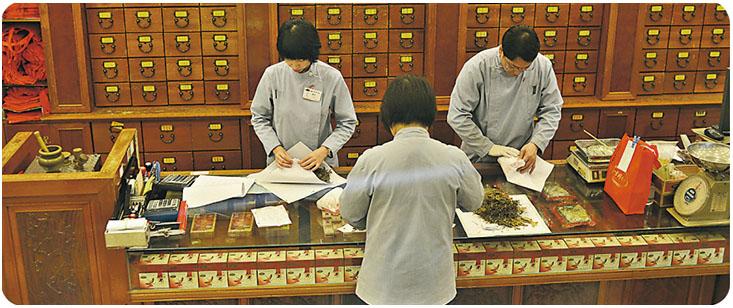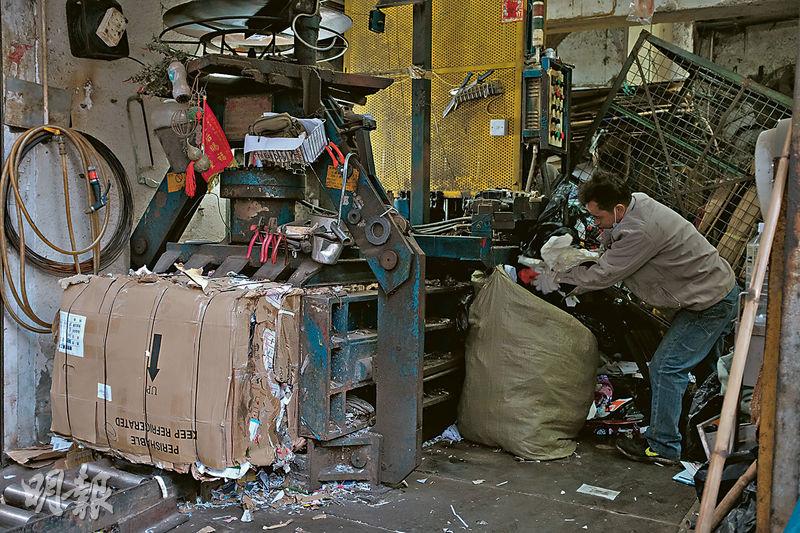Road to 5**:Regulations of proprietary Chinese medicines
【明報專訊】Proprietary Chinese medicines have always been widely used in Hong Kong. The Chinese Medicine Ordinance defines proprietary Chinese medicines as any proprietary product composed solely of Chinese herbal medicines as active ingredients and formulated in a finished dose form known or claimed to be used for the diagnosis, treatment, prevention or alleviation of any disease or any symptom. But proprietary Chinese medicines that contain non-Chinese herbal medicines can be exempted from the regulations.
◆News summary
Investigations conducted by the Office of The Ombudsman have discovered that some teapills contain bufotoxin (蟾酥), which is toxic and can only be bought with a traditional Chinese medicine prescription. Yet the ingredient was not specified clearly on the package, which only said that the product contained ''other'' ingredients. Furthermore, as it was stated on the packaging that the product was not registered under the Pharmacy and Poisons Ordinance or the Chinese Medicine Ordinance and that it was not for diagnostic use, it was able to bypass the regulations.
The Office of the Ombudsman pointed out that if the government does not impose effective methods of supervision, dietary supplements flooding the market may affect the health of the public. The Office urges the Food and Health Bureau to review and remove loopholes in the existing legislation as well as the registration system. Helena Wong, a member of the Democratic Party, pointed out that the government had intended to place complete regulations on dietary supplements in 2000, yet there was still no complete legislation after years of delay. According to Kong Chi Hung, President of the Hong Kong Chinese Medicine Manufacturers United Association, manufacturers face many difficulties in the proprietary Chinese medicine industry, such as high costs and the lack of laboratories for chemical examination, and the completion of chemical examinations does not necessarily lead to successful registration.
Source: Ming Pao, 25 November 2019
■Mock examination question
What stakeholder conflicts might occur if the government actively promotes the development of the proprietary Chinese medicine industry in Hong Kong?
·Traditional chinese medicine industry vs. Western medicine industry
Western medicine is the mainstream in Hong Kong. If the government actively promotes the development of the proprietary Chinese medicine industry, it may result in conflicts between the traditional Chinese medicine industry and the western medicine industry due to the differences in their respective medical philosophies. As traditional Chinese medicine is an essential part of Chinese culture, the traditional Chinese medicine industry may hope that the government will provide more resources and actively promote the development of the proprietary Chinese medicine industry, yet the western medicine industry may be concerned about safety problems regarding proprietary Chinese medicinal products and treatment methods.
·The government vs. Proprietary chinese medicine manufacturers
The government attaches great importance to drug safety and the health of the public. Medical drugs have to pass quality and safety tests, and the production of proprietary Chinese medicinal products is also strictly regulated. However, some proprietary Chinese medicine manufacturers pay more attention to cost and profit, and thus may not have the resources to invest in compliant pharmaceutical factories, which may result in conflict with the government.
·Patients vs. Mainstream medicine
Patients value their individual rights, such as the right to decide which type of treatment they are provided with. Yet mainstream medical professionals focus on medical safety, and they may not agree with patients who wish to be treated with traditional Chinese medicinal products or methods.
Translated by Odyssey Lang
[通通識 第688期]









